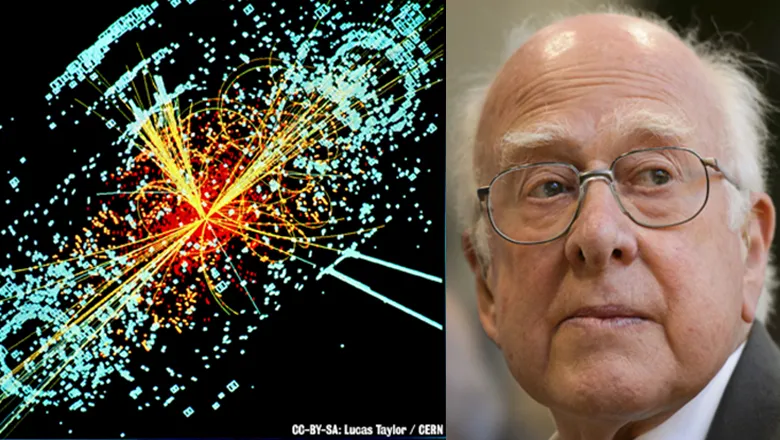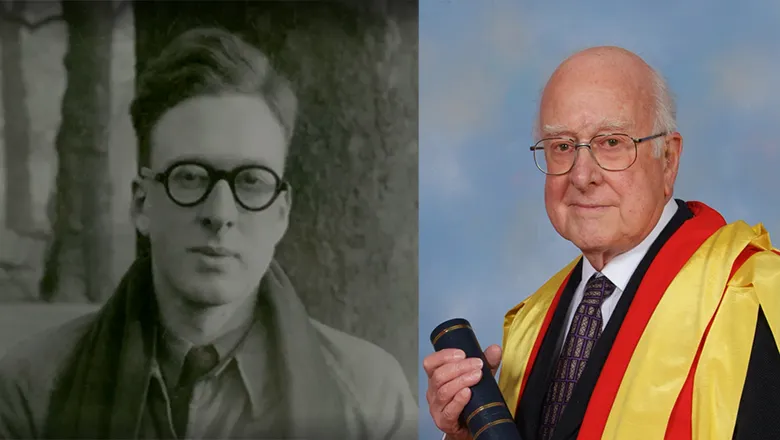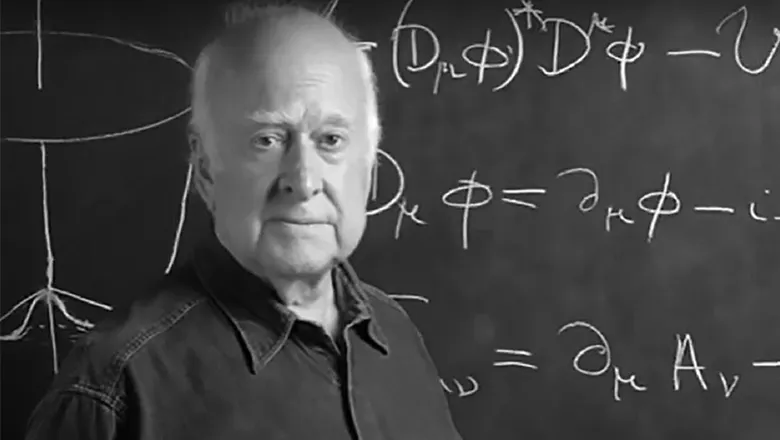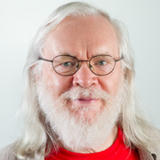Without his theory, atoms could not exist and radioactivity would be a force as strong as electricity and magnetism. His prediction of the existence of the particle that bears his name was a deep insight, and its discovery was the crowning moment that confirmed his understanding of the way the Universe works.
Professor John Ellis, Clerk Maxwell Professor of Theoretical Physics and a leader of theoretical physics at CERN
10 April 2024
Remembering Professor Peter Higgs (1929 – 2024)
King’s alumnus and Nobel Prize winner Professor Peter Higgs has passed away aged 94

We are deeply saddened at the death of one of King’s most notable alumni and Fellows, Professor Peter Higgs, who passed away this week.
Professor Higgs completed his bachelor’s, master’s and doctorate at King’s in the 1950s. He was best known for the 2012 discovery of the Higgs boson particle, which built on his foundational work dating back to the 1960s and explains how fundamental particles obtain mass. The discovery earned him the 2013 Nobel Prize in Physics with François Englert for work that is critical to our understanding of the Universe.
In recognition of his influence, King’s holds the Higgs Lecture series annually in his honour, the first of which he delivered himself in 2012, and continues to host pre-eminent speakers in the world of physics.
Ongoing research in our Department of Physics aims to further investigate and extend his ideas to precisely understand how Higgs’s theory works. The lasting legacy of his work also reaches beyond particle physics into areas such as condensed matter and string theory.

On hearing of his passing, academics from King’s Department of Physics paid their own tributes to him and the enormous significance of his work.
Professor John Ellis, Clerk Maxwell Professor of Theoretical Physics and a leader of theoretical physics at CERN, said:
"A giant of particle physics has left us. Peter Higgs was a profoundly modest man. He wiped tears from his eyes when the discovery was announced and said that he had never expected to see it in his lifetime. He also said that the existence of the Higgs boson was not a ‘big deal’, but it was."
Professor Malcolm Fairbairn, Professor of Physics said "I was very sad to hear about the passing of King’s alumni Peter Higgs whose work on particle physics was critical to our understanding of the Universe around us."
The discovery of the Higgs boson in 2012 was the perfect confirmation of his theory which explains how fundamental particles obtain mass. I am extremely proud to have him as one of our alumni.”
Professor Malcolm Fairbairn, Professor of Physics in the Department of Physics
Born in Newcastle upon Tyne in 1929, Higgs was schooled in Bristol and London between bouts of serious asthma before coming to King’s as an undergraduate to study Physics in 1947. He went on to achieve a first-class degree in 1950, followed by a master’s and then a PhD in molecular physics with his thesis ‘Some problems in the theory of molecular vibrations’ being published in 1954.
After moving to the University of Edinburgh, Higgs postulated the existence of the Higgs field and its associated particle, the Higgs boson, in 1964. The Higgs field is a field of energy thought to exist in every region of the Universe. Accompanied by the Higgs boson, the field uses the fundamental particle to continuously interact with other particles, such as electrons, and give them mass.

In 1967, the Higgs field and his theory of mass was incorporated into a unified theory which forms the basis of the Standard Model, a framework that describes all the visible matter in the Universe.
Despite its fundamental place in our current understanding of the world, his work on the Higgs boson struggled to find a place in scientific journals at the time, with one publication rejecting the study for being ‘of no obvious relevance to physics’.
Higgs retired from the University of Edinburgh in 2006, but continued to follow developments at CERN, the home of the Large Hadron Collider, where experiments continued to search for the particle he proposed in 1964. After a series of experiments that began in 2008, the team at CERN finally found the Higgs boson in 2012.
He leaves two sons, Chris and Jonny, his daughter-in-law Suzanne and two grandchildren.


